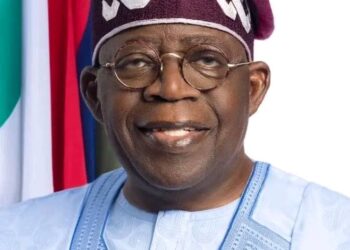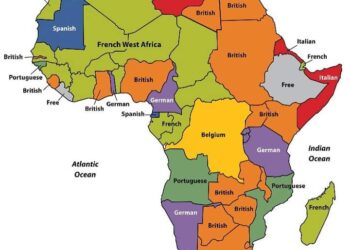Dr. Margee Ensign is the President, American University of Nigeria, Yola, Adamawa state. The AUN helmsperson speaks to journalists on the new law programme, her passion for the Chibok girls and what the institution is doing to assist them and others who are vulnerable ABDULRAHMAN A. ABDULRAUF reports
What is unique about this year’s matriculation?
It is pledge ceremony; very important. They pledge to each other, to truth, to integrity, to Nigerians. That’s not only significant for AUN, it is also for the entire region. It shows that the parents are confident enough that the insurgency, has been, I won’t say that it’s ended, but it is so far removed now. I think that is a word of confidence in the country, in the administration as well as in the AUN and in a lot of the parents too. The parents say really fascinating things. We have parents who brought their children home from America.
One point there is, probably, because of the economic slowdown there are parents, for instance, there is a dad who spoke at the dinner for them, he said he had one child in a university in America, and it costs $55,000 (fifty-five thousand dollars) for a year. American education is really expensive. So, he said he began looking for another university and he was so happy he found us. This time, we have the biggest class. They keep coming. Nigerians are coming home from America because we offer the same education that fits the cards. So, for me that is a really important point to get out. Why waiting for foreign exchange when you can give your children the American education here in the country?
But remember, this class now can study abroad at 48 universities and in 24 countries. It means any AUN student can go to one of those 48 universities and may pay AUN tuition. The point I am making is that they come here and they are being educated with other future Nigerian leaders. And they begin to go out to see the world at the same cost you pay in AUN. So, this 2020 class has got that opportunity. So, keep coming from America. They come to the AUN and get same quality education they get in America. Of course, our law school is officially opening tomorrow (Tuesday, August 30, 2016). You have heard me say many times that our law programme is very unique. I am really excited about that. We are putting together first grade faculty.
What education represents
For me what education represents, or part of what education can do is to look at those women who are vulnerable. For instance, the Chibok girls we brought to AUN, we have their pictures when they first came here- skinny, scared, etc, we had to begin from foundation class, English and Maths; we prepare them, so now we have six (6) out of 27 of those young women who are part of the pledge ceremony this year. I am enormously proud. The remaining 21 are still with the university in foundation programmes. They are being prepared for the university education. When I see their parents here, these are women who were living in the bush at the thick of the insurgency, they tell me their stories, ‘we cannot sleep in our houses we sleep in the bush’, very scary stories. The Chibok girls are saying ‘We won’t talk now, we’ll talk later what this thing means to us.’ And giving them university education is the best thing we would have done for them.
Other community services
Every AUN student is involved in one form of humanitarian service or the other. It is better for you to see them than for me to talk. You will visit our ‘feed and read’ section, where we have children picked from the road. We provide them a meal and also teach them how to read and write. The most vulnerable people in your country right now, I believe, are these children. They have been left behind, parents killed. They are living with us in the community, they are in their thousands; I only have money now for 200 boys and 200 girls; they feed and read – very simple (just as the name suggests) we have a total of 400; I could do 2000 (two thousand) tomorrow if I had the money, no question. They had no uniform when they arrived, but now they are in uniform. A woman in America who has a company producing school uniforms put some uniforms in a container and brought them to us.
I think the story is simple that if you pay attention to the kids – give them education- you have helped a whole generation. Again, the academic programme of AUN is tailored towards teaching our students how to solve those problems. My model is the American style university; great universities helped America become a power house in agriculture. You see such universities giving technology to extension agents that in turn train the farmers. That is how we became a powerful nation. We see faculty and our students as knowledge agents – how to read; how to grow food, how to adapt to various survival situations for the good of society. I wish every university in the country will begin to do a bit of this. I met the National University Commission (NUC) head recently – he is extraordinary, full of ideas – and I said maybe we can do some little more than is being done by the universities in the country to make a university education more relevant and begin to solve the basic needs of the country.
Could you tell us from how many countries these students are returning?
There are eight countries including Nigeria – South Africa, Rwanda, Uganda, Cameroun, US and Nigeria (some Nigerians are relocating from other universities within the country to AUN). I think what is happening has a link to the forex policy in the country right now. There’re many parents who had come from the US to bring their children here. I told you a dad said to me, ‘I brought him home to a better education from a fifty thousand (50,000) dollar education’.
Managing the period of insurgency
I came here in 2010. I remember in 2012, I got a message to return home that Nigeria was about to shut down. It was a very hard moment. That was when we formed the Adamawa Peace Initiative (API). We brought together the religious and community leaders. Long before the upsurge in the insurgency, we had this mechanism, because we started worrying about the kids who are vulnerable, especially older boys because they could be enlisted, they could be radicalised. It wasn’t easy. We got people together, we got talking and keep making friends and reaching out. But I found out that people were divided, they weren’t talking to each other. We began ‘reading project’ with kids and the IDPs story started. It was a tough decision feeding the people; but the founder, I never met anyone like him, said ‘make sure nobody goes hungry’.
He started sending money, telling us keep going, keep going; this is what a development university does.
So with that support we keep on going. I remember the first day we went to the Catholic Cathedral with the Imam and people were talking, ‘ah a white lady’. Then we went to Moslem Council – white lady, Catholic Bishop- the guys were like, watching with skepticism; so, both the Bishop, the Imam and everybody we sent a very clear symbolic message that nobody is dividing us; we’ll take care of our people – the victims who have no home, no hope and no education. At a point, we had an interfaith breaking of fast here at the AUN, it was beautiful.
Birth of law programme
Remember we do American style of education different from Nigerian education. I wanted to make sure we had 100 percent accreditation for every programme we want to run before we could start. We waited for the full accreditation. We went out to look at the programmes that match our university as a problem-solving university. It is very expensive to establish a law faculty, the type we want.
It is a curriculum that is carefully prepared with very important emphasis.
Why are we the first in the country doing gender law? We are adapting to the changing times and the need of the hour. We know what happens nowadays; today’s women have got some authority, economic growth, corruption is reduced; children are educated, mortality declines, you guys need to ask the question why hasn’t the gender law passed the Senate; why hasn’t the sexual harassment law passed the Senate?
We are also focusing on the environment. We saw a report recently, the extent to which the environment has been destroyed – in the Niger Delta. We need lawyers who are specialists in handling issues arising from such degradation, humanitarian laws, malnutrition- you may not have an idea how serious the problem of malnutrition is, child mortality, maternal mortality – everything, preventable. There must be specific laws to address such concerns. So, we want people trained in those areas to help solve the numerous problems arising from them.



